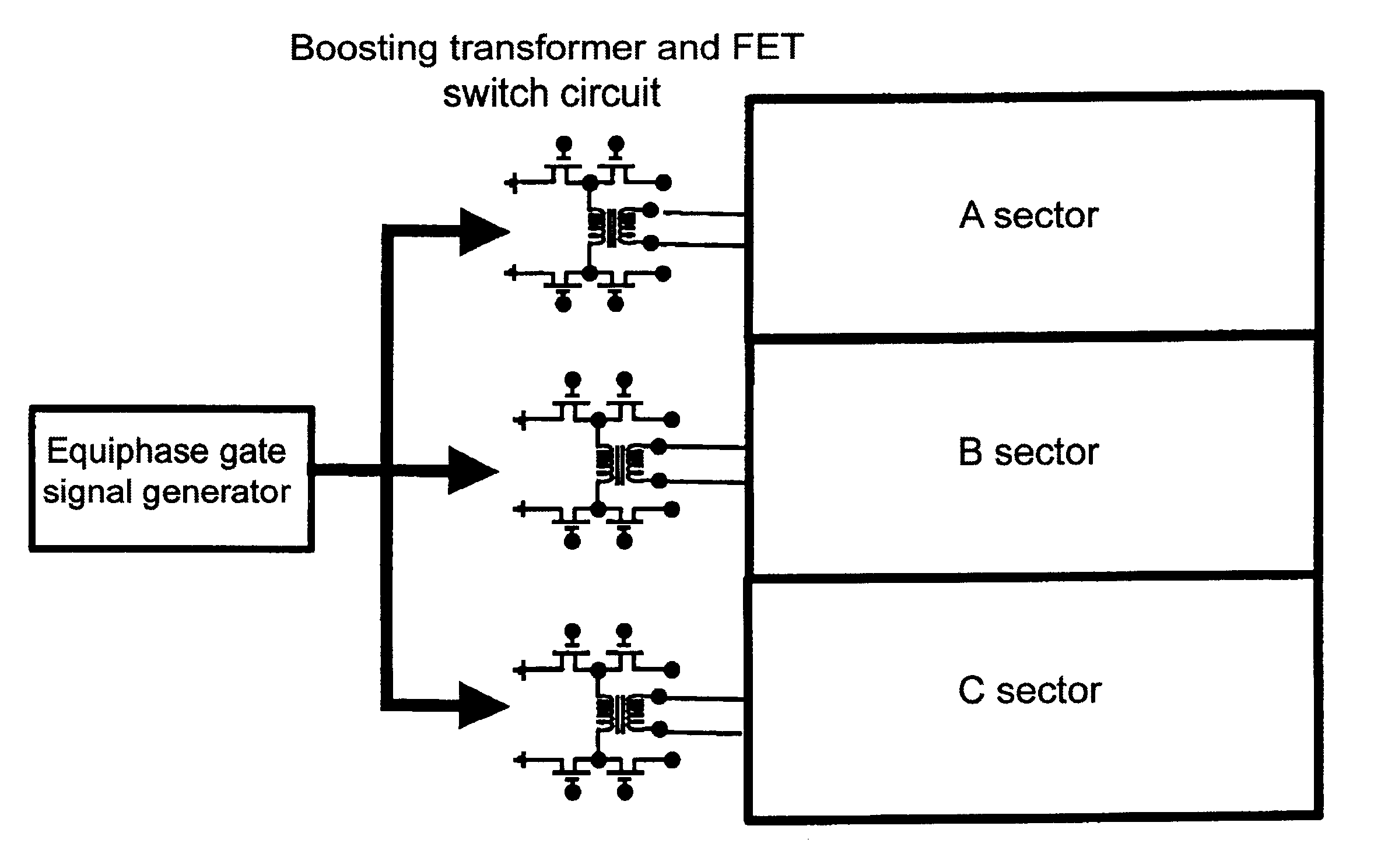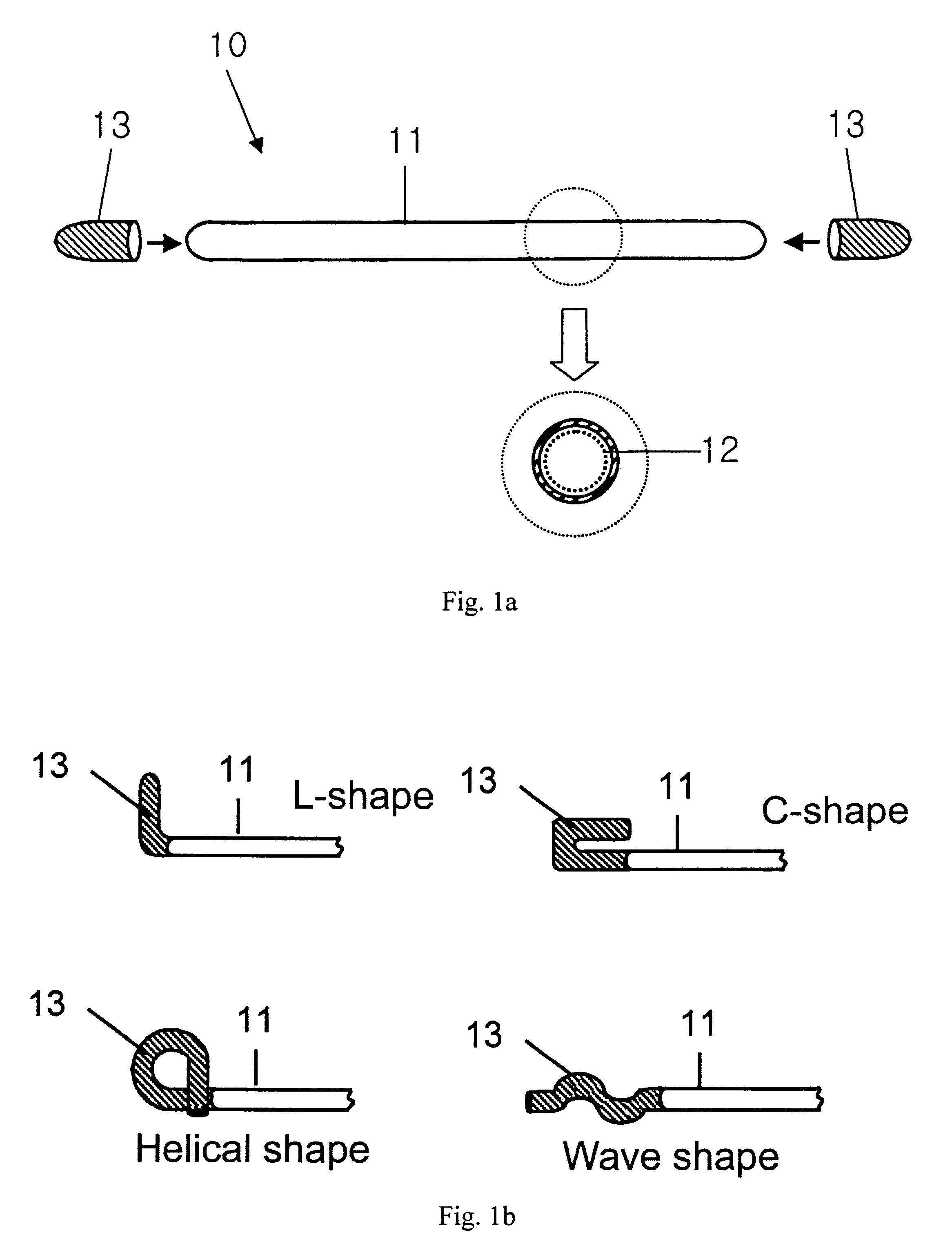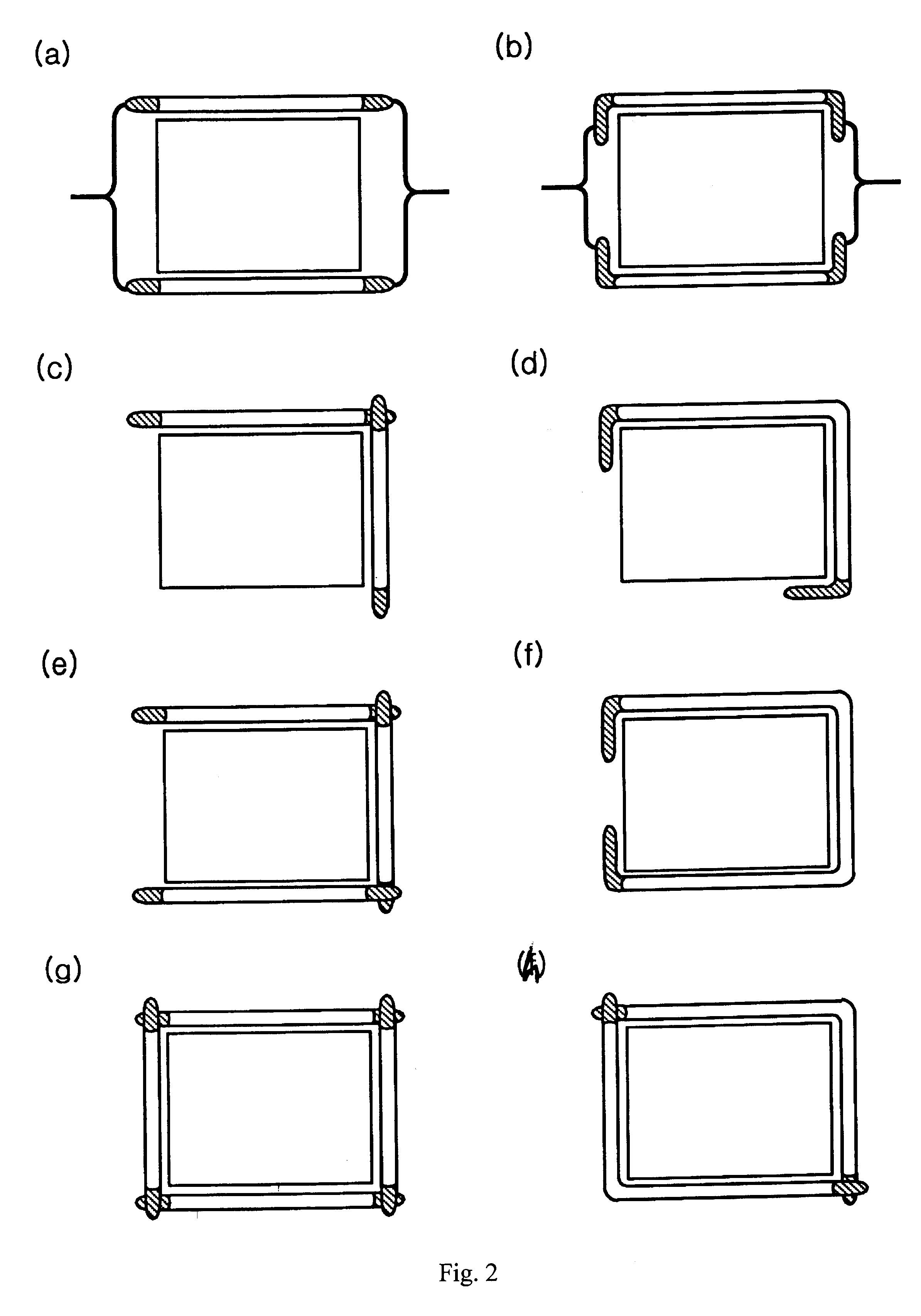Backlight including external electrode fluorescent lamp and method for driving the same
a fluorescent lamp and backlight technology, which is applied in the direction of lighting and heating equipment, instruments, process and machine control, etc., can solve the problems of inability to connect the ccfls in parallel arrangement and drive the backlight using a conventional inverter, and the edge light type is not suitable for a large screen panel. achieve the effect of high luminance and efficiency
- Summary
- Abstract
- Description
- Claims
- Application Information
AI Technical Summary
Benefits of technology
Problems solved by technology
Method used
Image
Examples
second embodiment
FIG. 2 shows different forms of edge backlight sources according to the present invention. As shown in FIG. 2, the EEFLs may be disposed around the plastic light guide in various formats. The edge active lighting type electrode can be employed as the external electrode fluorescent lamp and the cold cathode fluorescent lamp since high luminance and high efficiency can be realized using the electrode structures, as shown in FIG. 1. To this end, the inventive lamps are disposed at the edge portions of the plastic light guide and driven by a single inverter. The inventive lamps may be installed on both ends or along all edge portions of the plastic light guide.
FIG. 3 shows different direct light arrangements of the EEFLs according to the second embodiment of the present invention. The present invention is characterized in that high luminance and high efficiency are achieved by driving the parallel-connected EEFLs by a means of the switching inverter. The fine tube having an outer diamet...
third embodiment
FIG. 6a shows the backlight 30 according to the present invention, and FIG. 6b shows the assembled state of the backlight 30 shown in FIG. 6a. Referring to FIGS. 6a and 6b, the backlight 30 includes an upper substrate 31 and a lower substrate 32 distanced a part by a predetermined amount. The bottom surface of the upper substrate 31 is formed of an upper layer 33 of fluorescent substance. The top surface of the lower substrate 32 is also formed with a lower layer 34 of fluorescent substance.
A plurality of fluorescent lamps 35 is installed at a predetermined interval above the lower substrate 32. The fluorescent lamps 35 serve to support the upper and lower substrates 31 and 32 when coupled, and simultaneously, serve as a partition therebetween. The external electrodes 36 made of electrically conductive material are installed at both ends of the outer peripheral surface of each fluorescent lamp 35.
In order to supply the backlight 30 with electrical power, an upper electrode 37 and a ...
PUM
 Login to View More
Login to View More Abstract
Description
Claims
Application Information
 Login to View More
Login to View More - R&D
- Intellectual Property
- Life Sciences
- Materials
- Tech Scout
- Unparalleled Data Quality
- Higher Quality Content
- 60% Fewer Hallucinations
Browse by: Latest US Patents, China's latest patents, Technical Efficacy Thesaurus, Application Domain, Technology Topic, Popular Technical Reports.
© 2025 PatSnap. All rights reserved.Legal|Privacy policy|Modern Slavery Act Transparency Statement|Sitemap|About US| Contact US: help@patsnap.com



